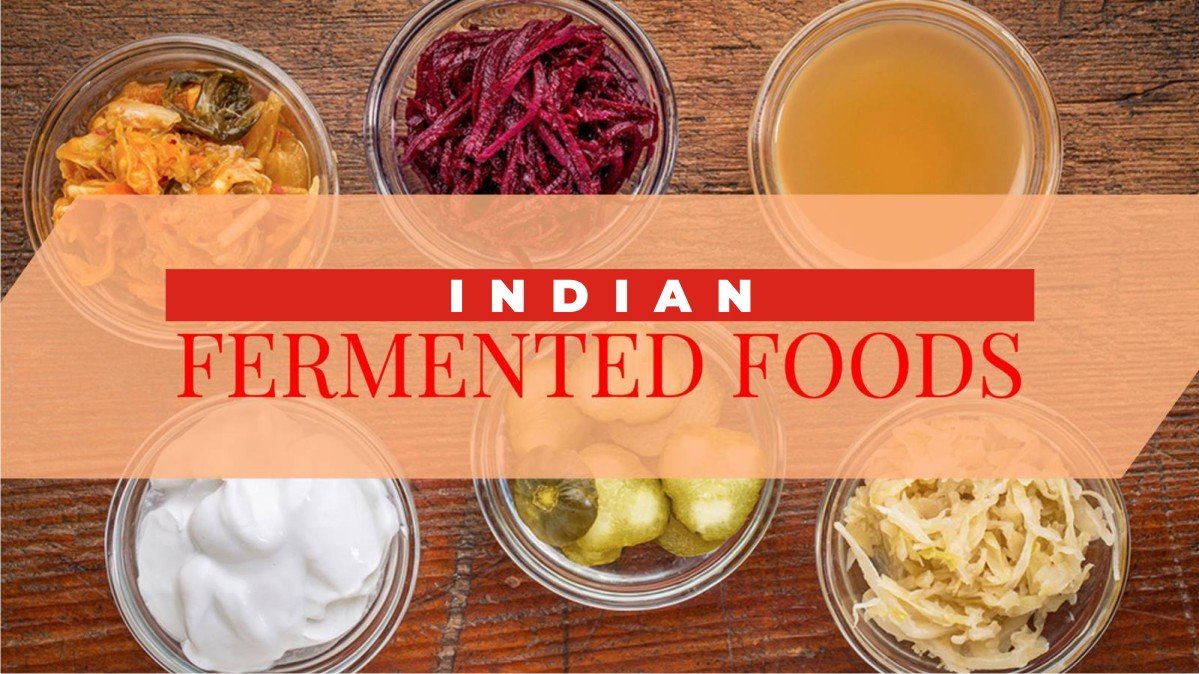
Fermented foods have recently been a popular subject of discussion among a wide range of individuals, including specialists. A naturally occurring anaerobic process in which bacteria and fermentation break down carbohydrates into organic compounds, alcohol, or gasses is called fermentation. As a result, this acid organically preserves food and transforms it into Indian fermented food. Aside from that, the flavor, texture, and perfume of these fermented foods are all rather pleasant.
Naturally fermented foods help promote the development of beneficial bacteria (probiotics), which help maintain a healthy and strong digestive system. It is a procedure that preserves the meals and infuses them with additional nutrients and probiotics as a bonus. Oxygenation was the only choice accessible to the people in ancient times when it came to organically preserving their food, eliminating pollutants, and improving the flavor and scent of their food. Fermented foods have been more popular among people due to the possible health advantages associated with these meals.
If you haven’t already done so, the moment has come for you to get on board with the Indian fermented food revolution. Each bite of naturally fermented food equals trillions of beneficial bacteria in your gut, far more than any artificial probiotic supplement could ever provide in a lifetime. Fermented foods, often known as “superfoods of the new generation,” in addition to promoting a healthy digestive tract, have been shown to significantly improve the immune system while also serving as a rich source of vitamins B and K2.
The consumption of food is a fantastic approach to getting those probiotics and various other critical nutrients. Here are a few examples of how they could benefit your health.
We’ve all heard about how probiotics found in Indian fermented foods may be beneficial to our gut microbiota, and it’s true. When there are more harmful bacteria in our lower intestines than beneficial bacteria, we might experience a variety of unpleasant digestive disorders, including constipation, diarrhea, and bloating. Increasing the number of beneficial bacteria in our stomachs may help restore balance and ensure that everything runs properly. Probiotics have long been suggested while taking antibiotics in order to lessen the likelihood of developing diarrhea as a side effect.
Our digestive tract contains 70% of our immune system, which means that our gut and our immune systems are connected in some way or another. It has been shown that improving the microbiome may help to decrease chronic inflammation, obesity, and other illnesses that put a strain on the immune system by tricking it into believing it is always under assault from an “invader.”
According to research, probiotics included in fermented milk products and moringa leaves were shown to boost the meals’ capacity to release calcium and the body’s ability to absorb it. Many other vitamins and minerals required for bone health and calcium may be found in large quantities in Indian fermented foods. In addition, rats’ bone mass was discovered to be boosted by kefir, according to research.
According to research, persons who suffer from anxiety and depression are more likely to have gastrointestinal issues, higher levels of inflammation, and immune-system malfunction. Probiotics derived from fermented foods may help alleviate digestive difficulties while also increasing the absorption of vitamins and minerals, such as B12 and K. They may also have a role in producing mood-regulating neurotransmitters such as GABA and serotonin.
Elevated levels of inflammation, immunological dysfunction, and imbalanced gut flora are associated with cardiovascular disorders, such as hypertension and arrhythmia. According to recent research, having a healthy gut flora may lower your chance of developing certain cardiovascular conditions.
Obesity and type-2 diabetes, which are frequent risk factors for cardiovascular disease, may be reduced by maintaining a healthy gut. Probiotics have been shown to help persons with type-2 diabetes maintain a healthy microbiome and reduce inflammation. Their gut flora differs from those who do not have the illness. Researchers discovered that probiotic supplementation led to weight reduction, a smaller waist circumference, and a lower body mass index (BMI) in obese or overweight people. Probiotics, such as those found in fermented foods, have been shown in certain studies to reduce fasting blood sugar levels and improve insulin resistance in the body.
It is believed that allergies are triggered by an overreaction of the immune system, which might manifest as seasonal spring sniffles, skin problems such as eczema, or food response. Because the majority of our immune system is located in our gut, boosting the overall health of our immune system may be able to alleviate allergy symptoms.
A tea that has been sweetened, commonly black or green tea with sugar (honey or sugarcane). It comprises a colony of bacteria and yeast that work together with sugar to start the fermentation process. Kombucha is high in antioxidants and may help prevent cancer.
A popular folk medicine that adds a tangy flavor to salads, beverages, and meals, among other things. Apple cider vinegar includes acids that promote the development of probiotics (good bacteria) in the stomach.
Proteins, calcium, vitamins, folate, enzymes, and probiotics abound in this fermented dairy product with a thinner consistency than yogurt. Kefir is also known as yogurt that you may consume.
Naturally fermented pickles produced at home are fantastic for intestinal health. They’re packed with antioxidants, vitamins, and minerals that you won’t find in a store-bought container of fermented pickles.
Yogurt, also known as curd, is a dairy product prepared by fermenting milk, making it the world’s most popular superfood. Lactic acid, produced during fermentation, causes milk proteins to curdle and imparts a zesty and sour flavor to yogurt. It’s great for aiding digestion and giving your skin a healthy shine.
A: Yes, fermentation increases the nutritional value of some foods. It also increases the supply of vitamins and minerals in the body for absorption.
A: The health of your stomach influences your body’s immunological response. Consuming fermented foods high in probiotic bacteria strengthens your stomach, which impacts your body’s immunological response.